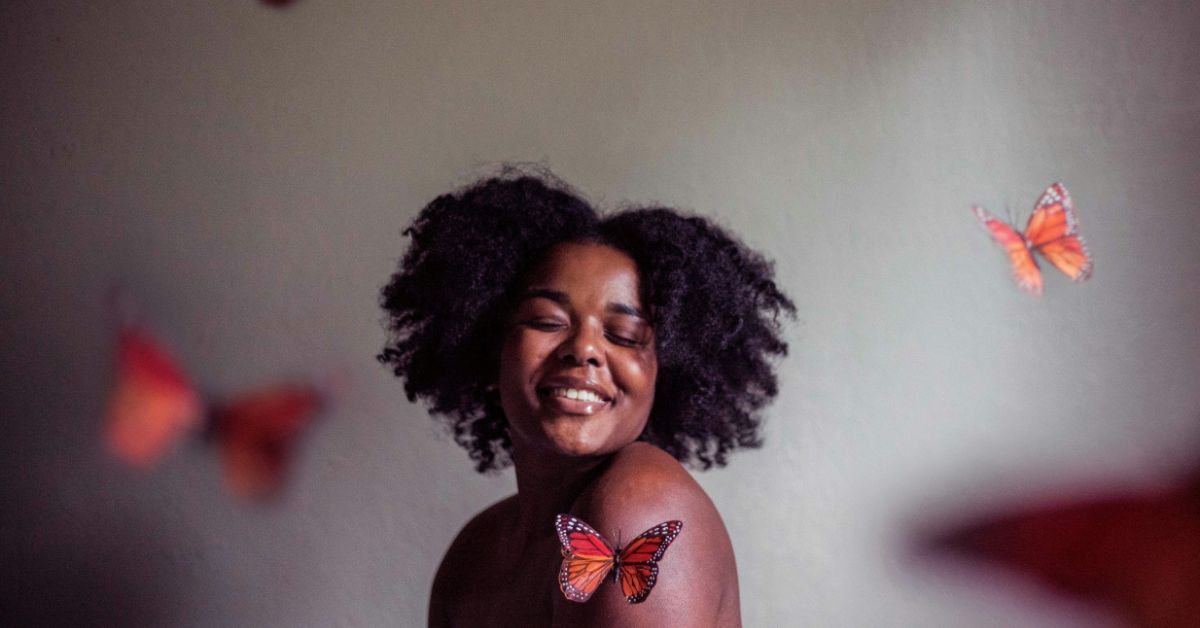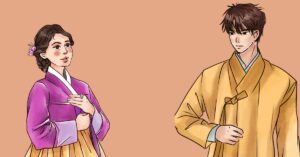After the October circuit, I got home bone-tired and was greeted by the aroma of cheese and bell pepper at the door. Sundown had come early; at only half past six o’clock, it was already dark. Mundia was in the living room, seeing by the light of his laptop’s screen. A half-eaten pizza and a bottle of soda lay on the coffee table — I guess he couldn’t wait.
“You’re home.” He looked up when I went in but did not get up to greet me.
“Yeah. What are you doing seated in the dark?” I asked by way of greeting.
“Research,” he said. “I found a bunch of postcards written to a missionary in 1922 by someone from the Church of Scotland. They still have the stamps on them and everything.”
“Oh, they could be worth something. The stamps at least, if not the postcards themselves,” I said, hauling my sleeping bag and travel bag from the porch.
“I thought so too. So… I was wondering if you would ask Noni to help me with the valuation.”
My friend, Noni, worked at the National Museum and had, at my bidding, helped him price and sell a colonial era musket he had seized in an auction. She had also, through her contacts at the National Archives, had him compensated for a handful of maps he’d recovered from the estate of a man who’d worked on a white settler’s ranch.
I was still resentful about him demeaning my work. Any other day, I would’ve repressed that feeling in favour of compliance, but I suddenly remembered an antique instant camera I had found in his warehouse a year before. I wanted to use it for a memory board package on my tours so I asked him to hold it for me. He put it up on the website, just to see what people would bid for it, and a collector bought it for more than I could compete with. I didn’t think much of it, but it started bothering me that I hadn’t said anything back then.
All those years I had spent sharing catalogues of his auction house to my networks. I hadn’t brought him any big business but I was supportive. And it wasn’t just the antique camera that he wouldn’t hold for me. There had also been a portable power station and a telescope I wanted for a stargazing package on camping trips.
“I think you should ask her yourself.”
“But she’s your friend,” he said.
“And it’s your business,” I said, going back out for my tent bag.
“Okay, I guess I’ll figure it out then,” he sulked.
I considered saying something encouraging out of guilt, but that would undermine the line I had just drawn. I had been sabotaging myself exactly that way for years, I realised, so I smothered that impulse unsparingly and stepped over its limp body on my way to the laundry room.
“Oh, Ceera,” Mundia called. “Did you take something out of the warehouse?”
I froze. Is this it? Are we finally going to have it out? I thought.
“Yeah, I took one of the bird baths. The wrought iron one,” I said, washing my hands in the sink.
“What for?”
“For birds, to bathe in. That’s what bird baths are for,” I returned to the living room and leaned over the back of a wing chair. “Do you want it back?”
“No, I’m just updating the inventory,” he said.
Later, we would have a lengthy and cyclical row over whether I had lied by omission. I would say that I hadn’t, and that I would’ve told him where it was had he just asked. He would say that he couldn’t have asked about something he didn’t know, to which I would reply that his lack of interest in my life did not amount to me lying. Had he asked how I was going to repair the rust, or offered to fix it up for me, I would’ve admitted that I’d already had it fixed and given it away.
This was true. I hadn’t planned on lying. In fact, the only reason I’d done something so brazen was to get his attention. Having tried everything else, I hoped that a real crisis would jolt him into realising that he was losing me. Possibly even spur some action from him to win me back, although, that was likely too much to hope for. It would have been enough just to get him to see me. It would’ve been enough to make him stop taking me for granted.
But he was not the sort of man to offer me acts of service anymore — that had merely been a ritual of courtship. Once he secured my commitment, there was no other reason to try. He just couldn’t be bothered. I, of course, obligingly met his needs without asserting that he reciprocate, though it was not for lack of trying. After fruitlessly pleading, coaxing and even coercing him, I had finally given in and slowly sank into a weary silence.
The only thing bothering him those days was that his friends were making more money than he did. But even that could be transmogrified into a deficiency on my part. He complained that I didn’t work more, but it was really the agency I held over what little I made that he resented. He openly disdained my job at my family’s company, not because I didn’t make enough from it, but because he couldn’t co-opt my income for his own competitive pursuits. Other than that, everything was good with him. He could have lived the rest of his life exactly as things were and been completely content.
It was me that needed the jolt awake. I’d got this idea stuck in my head that over years of being together and hearing each other’s pet peeves in great detail on multiple occasions, we would each tweak ourselves into the other’s ideal partner until we achieved peak harmony. Mutual metamorphosis. Growth. It was the least a person could do when another was bound to them for life. Alas, my optimism was misplaced. Mundia was not becoming anything. He was merely revealing more of himself to me and amplifying his most disagreeable parts as time went by. It was time to accept him for what he was, not what he could be.
***
After Mundia went to work the next morning, I had a leisurely breakfast then went to check on my lavender plants. There was a leak in the roof gutter draining rain water into the potted plants.
Nazir sent me a clip of two birds drinking from the bird bath with the caption: Tiny but noisy. What are they?
Sunbirds, I wrote back, then sent him a photo of my plants. He called.
“They aren’t too far gone, but tell your gardener to prune the affected roots and repot them in well draining soil.”
“That’s what I was going to do. The pruning and repotting, as I am my own gardener.”
“And move them to a sunny spot because they thrive in the warmth.”
“Right. I will do that as well. How do you know all this anyway?”
“I told you that the first day we met. That I grow seedlings of ornamental trees and grasses and I don’t even have a postgraduate degree like Mr. White Boy McDoctorate.”
“Wait, what?”
“You heard me.”
“Oh, is that why you were mad?”
“You were all like, you’re so impressive —”
“Is that supposed to be my voice?”
“Saving the bush babies like that —”
“It was koalas and you know it.”
“Aussie-mandias, my hero!”
My knees went weak with laughter. “My goodness. You’re a child!”
“Not just any child, I’m a middle child. Attention-seeking is on my birth chart, I can’t help it.”
“I thought it was a tree nursery. I didn’t know you grow shrubs as well.”
“And you weren’t even curious!” He said it like it was the biggest crime of all, but it was all with great levity so I did not feel admonished.
“Okay, okay. I’m sorry I didn’t inquire about your ornamental plants. I will do so fervently and doggedly from now on.”
“Good! Only a nightmarish intensity of interest from you will be sufficient.”
He told me about his first assignment in Chyulu Hills. He was partnered with a guy called Waithaka who was exceptionally good at identifying plants. All kinds of plants. Weeds, herbs, grass, it didn’t matter. He could tell anything about a plant just by the shape of its leaves or root system or the colour of its stem or the taste of its sap. It was a difficult assignment and they spent a lot of time fantasising about their transfers. What they’d do if they got sent to the coast, or the mountains or the desert.
“I had my share of the money we got from selling the Ngara house so I always thought I’d buy a piece of land, speculatively, and eventually build a lodge or some cottages, that was my retirement plan. But Waithaka always said he’d start a landscaping business. ‘Put me on a farm with some grass and I’ll show you the money,’ that’s what he’d say.”
By some stroke of luck, they both got transferred to Nanyuki.
“I bought the land and we started a landscaping side hustle. We figured it’s a growing town, there are a lot of hotels and nice homes coming up, and Waithaka was good at selling the service.”
“You own the land where the trailer is sitting? You never told me that.”
“Does that change anything?”
“No, I just didn’t know you were like invested in staying there permanently.”
“Well, not really. I may still get transferred. That’s why I opted for a portable home.”
“Right. So what happened to the business then?”
“It went well. I grew the plants, Waithaka negotiated the contracts and we trained some gardeners to do the actual work. But Waithaka had a mouth on him and the amount of money we made the first year made him cocky. He mouthed off to one of our bosses and got transferred. Now he’s doing his time in Kora. Have you been?”
“No. Our circuit doesn’t go that far.”
“It’s… on the grittier side, I would say. Mostly significant for the Adamson angle. Could be a crowd pleaser for the historically inclined.”
It was better to keep to neutral topics of conversation because I didn’t know when I would be back on the Nanyuki circuit. The end of the year usually saw us heading to spots along the coastline — Lamu, Watamu, Diani — sometimes the Maasai Mara. The holidays were also a busy time for wildlife parks and Nazir would be holding fort while the higher ups went on leave. Even so, it didn’t feel strained. We fell into an easy rapport that oscillated between friendship and occasional pining, a bittersweet feeling.
For the first time in a long time, I had something to look forward to. The numbing dread of having the rest of my life mapped out a certain way lifted, making room for excitement, vibrancy and even freeness.
***
To be continued…







